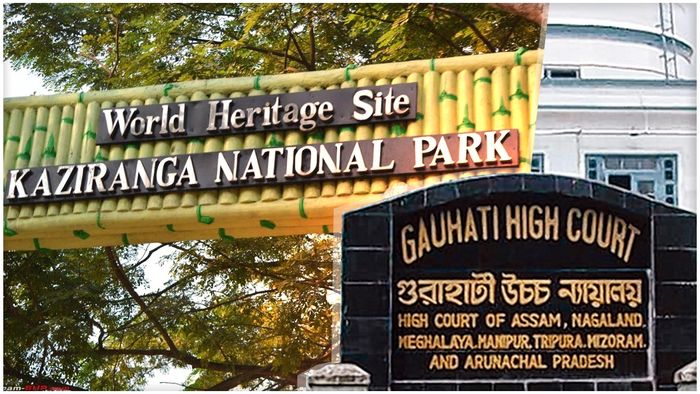Assam: Kaziranga National Park lacks Eco Sensitive Zone despite Supreme Court's order, PIL filed
The petition outlines that, despite the central government's directive in 2002 to establish ESZs around national parks and wildlife sanctuaries, the Assam government has yet to comply.

- Oct 24, 2024,
- Updated Oct 24, 2024, 6:57 PM IST
Despite Assam's famed Kaziranga National Park's status as a UNESCO World Heritage Site, the Assam government has yet to officially notify the Eco-Sensitive Zone (ESZ) surrounding the park. The ESZ is intended to serve as a protective buffer zone that mitigates the impact of human activity on wildlife by acting as a shock absorber for the ecosystem. The absence of this notification raises concerns about the protection of one of India's most iconic national parks, which hosts a high density of endangered species.
The push for an ESZ around Kaziranga dates back to 2002, when the central government decided to establish buffer zones for all national parks and wildlife sanctuaries across India. The implementation of this decision was left to the respective state governments, who were tasked with notifying these zones in accordance with local conditions. Four years later, in 2006, the Supreme Court of India reinforced the directive, mandating all state governments to notify the ESZs surrounding protected areas.
In Assam, the state government has submitted three separate proposals to the central government for Kaziranga's ESZ designation. However, all three submissions were deemed incomplete, leading to repeated rejections. The central government also advised Assam to create an "integrated corridor" for the park, yet no concrete steps were taken to address this recommendation, leaving the park's buffer zone unprotected.
The delay in notifying the ESZ has had significant consequences for Kaziranga's ecological balance. There has been an alarming proliferation of resorts and other permanent structures within the park's nine identified wildlife corridors. Such development not only disrupts animal movement but also increases the risk of human-wildlife conflicts. Despite Supreme Court orders in 2013 and 2019 to halt mining operations within the corridors, illegal mining activities have persisted, particularly in the adjoining Karbi Anglong district.
These ongoing violations have prompted demands for a thorough investigation into the prolonged delay in notifying the ESZ. Environmental activists and concerned citizens are calling for a court-monitored inquiry or a Central Bureau of Investigation (CBI) probe to uncover the reasons behind the inaction. They argue that despite repeated directives from the Supreme Court and the central government, the Assam government has not fulfilled its obligation to safeguard Kaziranga's wildlife corridors.
Petitioner Rajeev Bhattacharyya has filed a Public Interest Litigation (PIL) in the Gauhati High Court stating the pressing issue of the absence of an Eco Sensitive Zone (ESZ) in the renowned Kaziranga National Park, a UNESCO World Heritage Site.
The petition outlines that, despite the central government's directive in 2002 to establish ESZs around national parks and wildlife sanctuaries, the Assam government has yet to comply.
A major concern highlighted in the PIL is the rapid proliferation of resorts and permanent structures within nine animal corridors leading to Kaziranga, which threatens the natural habitat and disrupts wildlife movement. The Supreme Court's previous orders from 2013 and 2019 to halt mining activities in the Karbi Anglong district, which borders Kaziranga, have largely gone unheeded, exacerbating the ecological crisis.
The petitioner argues that the Assam government's inaction, despite clear directives from the Supreme Court and the Centre, raises serious questions. The plea demands a thorough investigation into the reasons behind the delay in notifying the ESZ, calling for a CBI inquiry to scrutinize potential negligence or malfeasance.
In its ruling on October 24, 2024, the Gauhati High Court decided to keep the PIL pending until the Supreme Court issues a verdict regarding illegal mining activities in Karbi Anglong.
Bhattacharyya's petition states the need for immediate action to safeguard Kaziranga’s rich biodiversity, demanding not only the notification of the ESZ but also the removal of all illegal structures that violate Supreme Court mandates regarding wildlife corridors.
Also Read: Assam: Grand celebration underway in Barekuri on the occasion of "World Gibbon Day 2024"